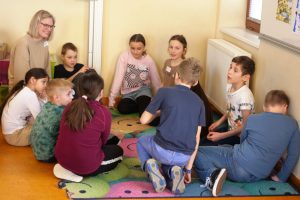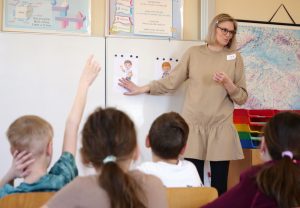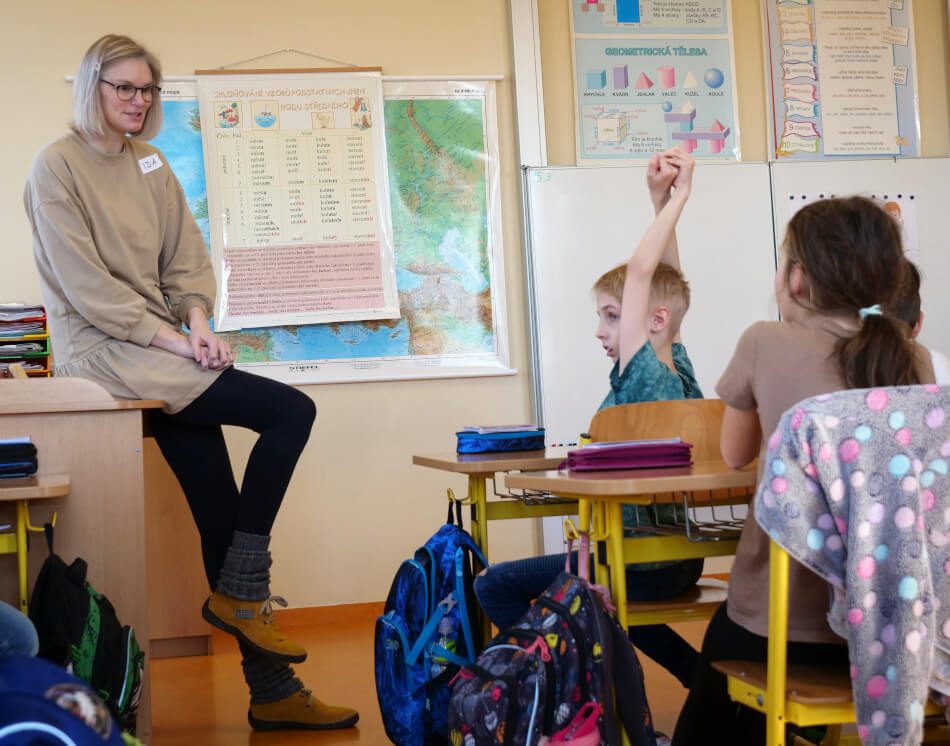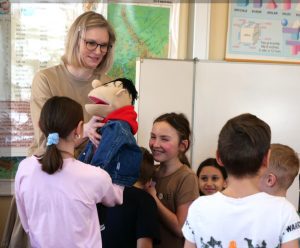The Healthy Youth Worker Ida Pencova knows, how to do it! She helps children in the classroom to build good and healthy friendship in a natural and fun way.
Very common topic in schools today is about establishing good relationships in the classroom and avoiding bullying. The range of forms such a program can take, is wide across our country.
The program of Ida shows, that it is not just about dry information or having fun. It is the “relationship with the audience” that works best on such a program, of which Ida is a living proof. Children can easily sense if someone likes them, as psychologists describe on so-called mirror neuron presence. Those act as a detector of perception in everyone and are particularly developed in children. Since children do not yet fully understand some adult relationships and contexts, they make even more use of this natural channel of perceiving of their surroundings. And on the program with Ida, the children began pretty soon to show very open and confident communication and discussed questions like: “What should a friend be like?” or “What do we have in common with our friends and what are the differences?”

Each activity is concluded with feedback: What do you take with you from the game? How can you use it in your relationships?
Considering the age of children, Ida continuously includes different games and livelier activities. In the end, they are always concluded with feedback. Ida discusses with the children their experiences in the game and how it relates to their relationships with each other. The children learn to apply what they have learned to their everyday lives.
Ida has mastered the skills, which belong to charm of a good HY worker: to have the structure of the program firmly set in your head and appearing very natural in the same time – creating an atmosphere of comfort, security and confidence. It is not easy at all to put all these elements together.

How do you imagine a really good friend? Ida gives the children space to think about it and describe it to others.
Finally, there is a very practical feedback session. The children vote on what topic of the today’s ones they need to work on. They have a choice: to talk nicely to their classmates, to be more considerate of others, and finally, to forgive. After a while of thinking, votes distribute evenly in all topics. I vote, too, at least in my mind, since, thanks to the program, I realized my own reserves. In short, the program is practical for all generations!
Martin Stavjanik, the Authorized Supervisor of the HY Program workers






